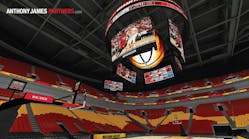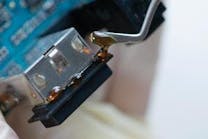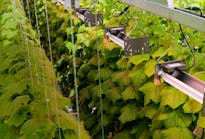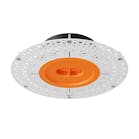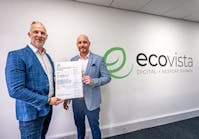MEDFORD, MA – December 17, 2021 –The DesignLights Consortium (DLC) today released LUNA Version 1.0 Technical Requirements for outdoor LED luminaires that not only save energy and meet the DLC’s Solid-State Lighting (SSL) Technical Requirements, but also include attributes to limit sky glow and light trespass and ultimately mitigate light pollution.
LUNA products will appear as a subset of luminaires listed on the SSL Qualified Products List (QPL) and will be eligible for efficiency rebates and incentives designed for SSL V5.1 products.
“We know that with good design and the right products, we can mitigate the growing problem of light pollution,” DLC Executive Director and CEO Christina Halfpenny said. “LUNA will streamline the process of selecting efficient outdoor lighting products that minimize sky glow and light trespass while still yielding the efficiency benefits of LED lighting. The DLC is excited to provide LUNA as a resource for commercial lighting, and grateful for the insightful feedback by lighting experts, industry, efficiency programs and dark sky advocates during two rounds of stakeholder comment.”
With the LUNA requirements in place, municipalities, as well as utilities and efficiency programs, will be better able to support their energy reduction goals and abide by dark sky policies and ordinances. LUNA will also help specifiers to fulfill the light pollution and trespass requirements of LEED and WELL building programs, and help projects follow application guidance in the joint IDA-IES Model Lighting Ordinance.
According to the International Dark Sky Association (IDA), a third of all outdoor lighting in the US is wasted, costing facility owners some $3.3 billion annually and responsible for 21 million tons of carbon emissions annually.
Once fully implemented in 2022, LUNA will identify energy efficient luminaires that can be used in lighting designs that conform to the Five Principles of Responsible Outdoor Lighting adopted by the IDA and the Illumination Engineering Society (IES):
• Be installed only when and where there is a clear purpose;
• Be targeted, directing the light beam downward so it doesn’t spill beyond where it’s needed;
• Be no brighter than necessary;
• Be controlled with timers, motion detectors, and other technology that allows lights to be dimmed when possible and turned off when not needed; and
• Use warmer colors, limiting shorter (blue-violet) wavelengths shown to contribute most to light pollution.
The DLC notes, however, that the technical requirements apply only to white-light LED outdoor products, which does not include some types of outdoor lighting. For example, non-white (amber) luminaires, which are appropriate for settings such as environmentally sensitive areas, are excluded from LUNA. This is because standardized metrics are still in development for non-white light.
The DLC anticipates that manufacturers will be able to apply to list products for LUNA qualification on the SSL QPL in the first quarter of 2022.
The DLC will discuss specifics of the LUNA Version 1.0 Technical Requirements during a webinar on January 26, 2022 at 1 p.m. Eastern. Register here. The DLC will offer an additional Mandarin webinar on February 17, 2022 at 9 p.m: https://register.gotowebinar.com/register/3167520795391880464.
Register for the Mandarin webinar here: https://register.gotowebinar.com/register/2299121014899389199.
About the DesignLights Consortium: The DLC is a non-profit organization improving energy efficiency, lighting quality, and the human experience in the built environment. We collaborate with utilities, energy efficiency programs, manufacturers, lighting designers, building owners, and government entities to create rigorous criteria for lighting performance that keeps up with the pace of technology. Together, we’re creating solutions for a better future with better lighting.
Contact:
DesignLights Consortium

